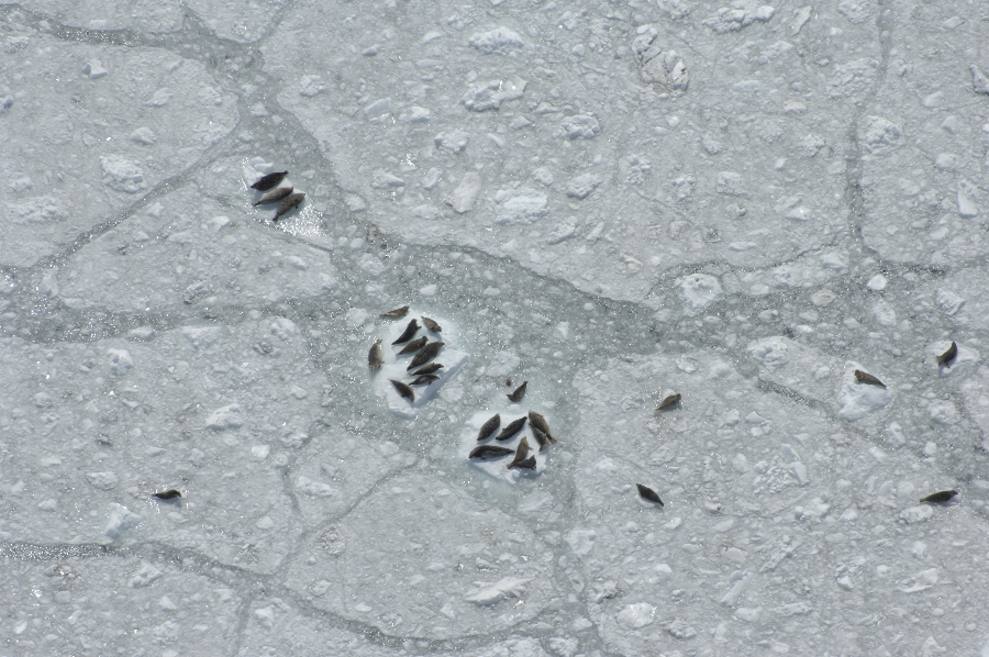
I am happy to announce a recently published paper from the Glacier Bay harbor seal project that describes a method that uses object-based image analysis to quantify the characteristics and availability of floating glacier ice from aerial photographs in Johns Hopkins Inlet in Glacier Bay National Park. The project is a collaboration with the Geophysical Institute at the University of Fairbanks (Robert McNabb, Anupma Prakash, Rudi Gens, and Christian Haselwimmer) and the National Park Service.
Tidewater glacier fjords host some of the largest seasonal aggregations of harbor seals in Alaska and the world. Harbor seals use glacier ice as a substrate for resting, pupping, and molting. This is the first study to develop an automated method that can be used to quantify glacier ice habitat that is used by harbor seals. Analysis is currently underway to quantify seasonal and annual changes in glacier ice habitat in Johns Hopkins Inlet. This new method could also be applied to ice habitat in other tidewater glacier fjords in Alaska and to ice habitats in subpolar and polar regions.
Details of the project are available at https://www.nps.gov/glba/
A press release about the new publication from University of Alaska Fairbanks can be found at http://news.uaf.edu/ice-
To read the full scientific paper use this link to online journal PLoS ONE: http://journals.plos.org/plosone/article?id=10.1371/journal.pone.0164444
Citation: McNabb RW, Womble JN, Prakash A, Gens R, Haselwimmer CE (2016) Quantification and Analysis of Icebergs in a Tidewater Glacier Fjord Using an Object-Based Approach. PLoS ONE 11(11): e0164444. doi:10.1371/journal.pone.0164444
